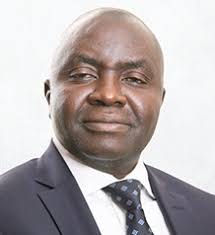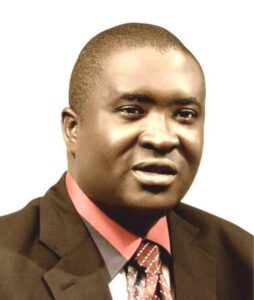· ‘No, Not Done Anywhere In The World, Will Bring Chaos’ – Experts
Oluyinka Onigbinde
In a bid to ensure the revitalization of the ports in the eastern part of the country, clearing agents operating in those ports and the Organized Private Sector experts have expressed discordant tunes on how to revive the ports.
Recall that clearing agents operating in the eastern part of the country have over the years lamented poor cargo traffic at the ports located in that part.

They have persistently urged the Federal Government to come up with plans to revive these ports and save freight forwarders who are gradually running out of business, due to poor cargo traffic.
In a chat with our correspondent, Mr Uche Ohaegbuchi, who is the Chairman of Association of Nigerian Licensed Customs Agents (ANLCA), Calabar Port chapter, specifically called for categorization of cargoes, stating that not all cargoes should be allowed to go to Lagos ports.
He explained that the port destination policy was introduced during the Olusegun Obasanjo tenure as President of the country. He said it helped the eastern port greatly.
According to him, “there is no job in the eastern port, there is virtually no jobs for the freight forwarders to do, most of the freight forwarders are frustrated. And I think what the federal government can do is to come up with a deliberate policy to categorise consignment for each port. It was done during the Olusegun Obasanjo regime, where the government said pharmaceutical products should come in via Calabar, Tin Can and Kano Airport only. At that time, if an importer of pharmaceutical products went to Tin Can and he found it difficult to clear, he had alternative to clear in Calabar. So it can be done; the government can decide and say let imported building materials come in through Calabar port, importers will have no other alternatives than to take their goods to Calabar”.
He further stated that, “the government can give a rebate to vessels calling at the eastern port. Let there be incentives that will encourage them to come here, so those incentives will now help in cushioning the additional freight charges that they have paid when they are bringing in this consignment through Lagos port”.
“Also, we need to deemphasize this propaganda that the waters in the eastern port are shallow, it’s pure propaganda as far as I am concerned, if we are having a consignment of 16,000 metric tonnes coming in with wheat and others, so is it a container that won’t come in?
An average tonnage of a container is about 25 to 30 tonnes; divide 16000 by 30, then you see that you are talking in excess of about 500 containers, do we have such containers coming here, we don’t, so whoever is complaining about the draft is just bringing propaganda just to destroy eastern ports, so the way to revive this ports, is to categorise some products and this port will come back to life” he said.
Also speaking, another clearing agent; Chukwuemeka Agu urged the Nigerian Port Authority (NPA) to be deliberate in making eastern ports work. Agu also urged that the government should bring in a port destination policy that will help revive ports in the eastern part of the country.

However, reacting to the suggestions of the clearing agents at the eastern ports, the Chief Executive Officer of Center for Promotion of Private Enterprise (CPPE); Dr. Muda Yusuf disagreed with the suggestions.
He argued that imposing port destination on any importer will bring chaos in the logistics supply chain. He said issues militating against the high cargo traffic at the eastern port need first to be resolved, after which importers can then be encouraged by the government with incentives that will make them take their cargoes to eastern ports.
He said, “I don’t think we should impose port destinations on any importer, what I think should happen is for the authorities to give incentives for people to make use of that port.
“I know that there are issues about the draft which is also making it difficult for some vessels to go there, the draft needs to be improved upon, and that will require investment by the government. Secondly there were complaints about security; about vessels going to those location, the security risk is higher, even there is a risk premium which they charge if a vessel has to go there, they charge you additional fee because of the security risk, so the way to do things like this is first to address the concern of shippers, secondly is to introduce incentives”
“NPA can waive some fees or give a very good discount for any importer making use of that destination, there could be incentives that can be used to drive the patronage of the port; not to be imposing it on people to go and use it. That approach, I don’t think will be okay” he said.

On his part, a transport and logistics expert, Mr. Francis Omotosho disagreed with plans to designate some products to the eastern port, stating that there is nowhere in the world where Port Authorities will favour one port against the other.
He also opined that there is no need to give waiver on port dues and charges to any port in order to attract liner carriers/shipping lines to that port. He said port dues should not be misinterpreted as fiscal taxes and should never be allowed to acquire the character of taxes.
According to him, “there is nowhere in the world where the Port Authorities would favour one port against other ports in that country. No need to give any waiver on port dues and charges to any port in order to attract the liner carriers/shipping lines to that port. Ports dues should not be misinterpreted as fiscal taxes and should never be allowed to acquire the character of taxes. They represent payment for the use of port facilities and they should be assessed on all vessels, goods and passenger’s entering and leaving the port. The level of dues should be in a reasonable proportion to the value or usefulness of available facilities to various categories of traffic.
He suggested that: “The NPA should rather construct and open a transit feeder terminal in Lagos Port Complex, where the deep sea going liner carriers/international shipping lines can discharge cargo/containers meant for other Eastern Ports in Nigeria and to be picked up by the feeder vessels/Cabotage vessels in Nigeria onward for distribution to final destinations in the Eastern Ports.
Read Also: MARITIME SAFETY: US Reiterates Commitment To Support Nigerian Navy
“The situation is between the Cargo Owners/Importers and Liner Carriers/Shipping Lines. Although the Cargo Owner/Importer specifies the destination of his cargo; the Liner Carriers/Ship owners ultimately determines where to drop the cargo. However, they will not like to waste time and spend double money in a situation where they have to drop cargo at Lagos Ports and still have to go to Port Harcourt.
“They just need a pivot port where all the cargoes will be sorted out and the ones for eastern ports would be taken to the transit feeder terminal for onward transfer to the final destination in Port Harcourt.
“No doubt, we need to have viable seaports and growing hinterlands for us to survive. However, successful ports provide the services that customers demand. In respect, ports are no different from any other product or services, which are subject to the universal laws of supply and demand and port itself is a derived demand; so those, which are cited in the right place and which serve the needs of that market will thrive; those, which do not, will decay”.
He suggested that, “there is no reason why ports in the Eastern part of Nigeria should be less-efficient than ports of the Western Part of Nigeria. A proper approach by the Nigeria Ports Authority-led by Mohammed Bello Koko is to have a correct selection of professional advisers as the main prerequisites for success”.
Kindly like us on Facebook/twitter















